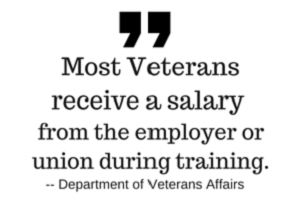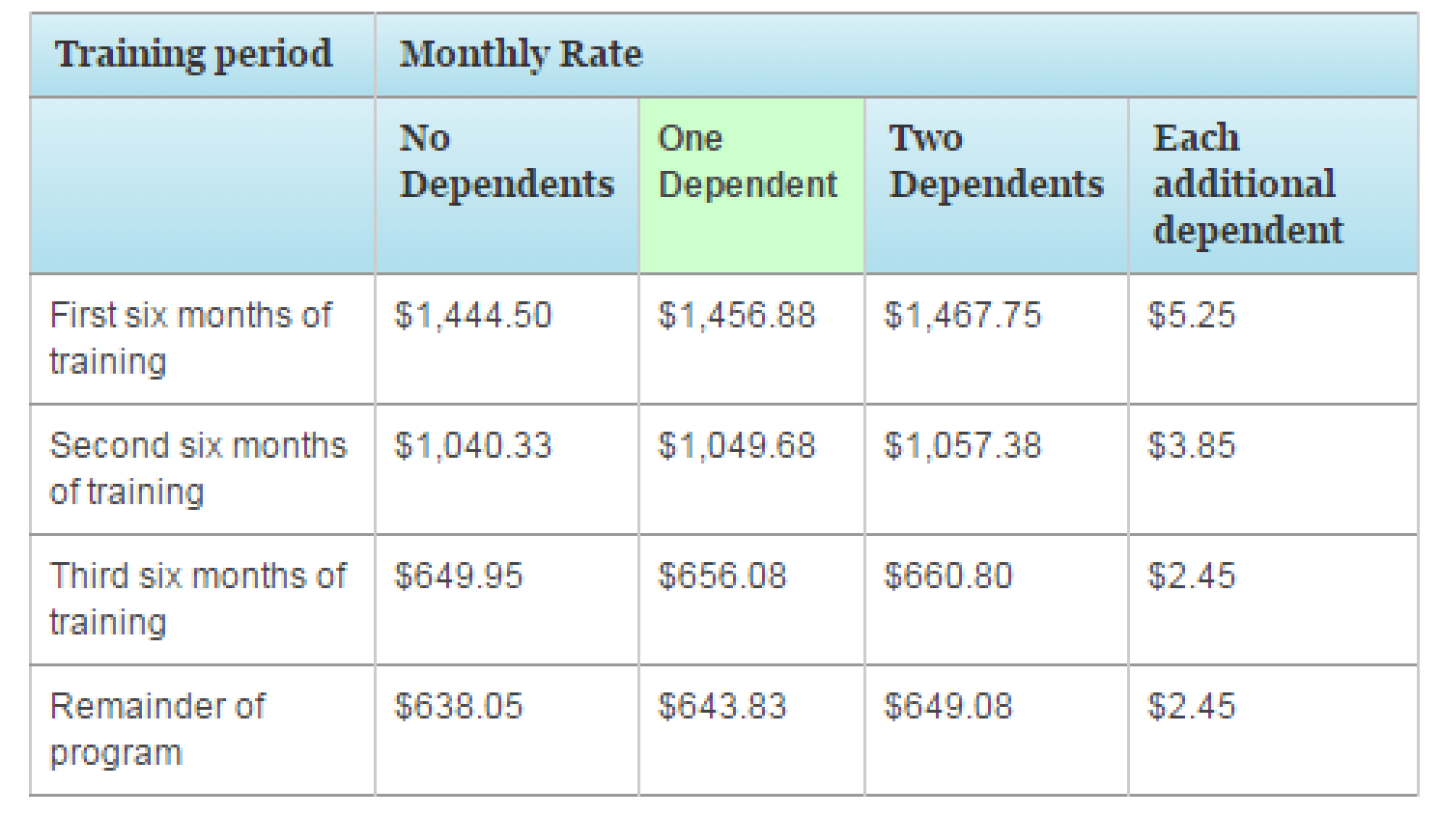This article is a part of our veterans’ resource series, which is focused on PoliceOne readers who are also military veterans.
By Megan Wells, Police1 Contributor
You’ve worked hard for your GI Bill benefits, and now it’s time to let them work for you. Assessing the best way to use your GI Bill benefits can lead you down several paths. One popular path is pursuing a college degree. Another, perhaps less utilized, path is on-the-job training (OJT) or apprenticeships.
According to the Department of Veterans Affairs, on-the-job training and apprenticeships give you the opportunity to train with an employer or union for a defined period of time. At the end of a completed training program, you’ll receive a job certification. These certifications provide a path to work in police departments, fire departments or emergency medical services, among other public safety roles.

How does my GI Bill work for on-the-job training?
Rather than redeeming your GI Bill benefits for college tuition, you can use these benefits to help cover your expenses while learning a new trade. GI Bill coverage is not the same for all veterans. If you have a post-9/11 GI Bill, your on-the-job training coverage will be different than those with the Montgomery GI Bill (both MGIB-AD and MGIB-SR).
Post-9/11 GI Bill
Post-9/11 GI Bill recipients will receive 100 percent of your applicable monthly housing allowance (MHA) for the first six months of training. After each six-month period of training, your MHA will decrease by 20 percent. Post-9/11 GI Bill recipients also receive up to $83 per month for books and supplies, if applicable.
Current stipend rates for Post-9/11 GI Bill recipients, as of October 1, 2015
Source: www.benefits.va.gov
Montgomery Bill (MGIB-AD and MGIB-SR)
Active duty Montgomery Bill recipients (MGIB-AD) start on-the-job training and apprenticeship programs at 75 percent of the full-time GI Bill rate for the first six months of training. The stipend will decrease by 20 percent after each six-month training period.
Current stipend rates for MGIB-AD recipients, as of October 1, 2015
Source: www.benefits.va.gov
Select Reserve Montgomery Bill recipients have a different monthly rate than post-9/11 or active duty Montgomery Bill recipients. As of October 1, 2015, select reserve recipients can expect a starting stipend of $276 per month, decreasing after the first six months.
Current stipend rates for MGIB- SR recipients, as of October 1, 2015
Source: www.benefits.va.gov
Do I get paid while training?
Veterans typically receive a salary for their training, though wages will likely be reduced from what a full-time employee could expect. According to interviews conducted by the Government Accountability Office, veterans use their wages as supplemental income to help stay afloat while training for a new trade.
How do I get started?
Any company can apply to be approved for an on-the-job training or apprenticeship program by the Veterans Benefits Administration as long as they adhere to guidelines set in place by the VA. However, there is no reason to reinvent the wheel. Many companies are already approved for on-the-job training and apprenticeship programs.
Common participants are:
- Police departments
- Fire departments
- Emergency medical services
- Health care facilities
- Security departments
- Public safety
- Education
Here are a few other great resources to locate specific companies you might be interested in:
- WEAMS Institution Search details on-the-job training and apprenticeship opportunities by state.
- The Department of Labor shows on-the-job training and apprenticeship opportunities by state and includes additional resources for further research.
- Military Friendly lists the most military-friendly employers in the United States.
If you’re considering a company that isn’t included by the resources included in this article, contact the National Association of State Approving Agencies to find out how that employer can become eligible.




